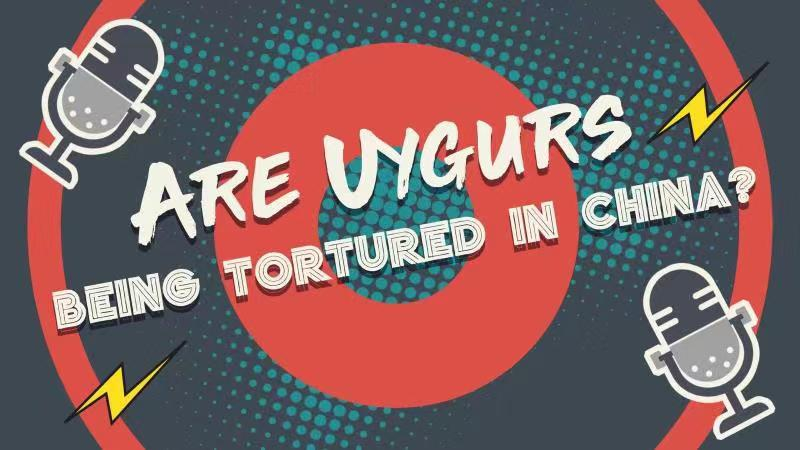
Opinion
07:59, 18-Mar-2019
Are Uygurs being tortured in China?
Updated
09:27, 18-Mar-2019
CGTN
03:22

Editor's Note: As China emerges as an influential stakeholder in the international arena, issues surrounding this ancient country seem to be frequently misinterpreted by Western media. To clarify the misunderstandings and demonstrate the true image of China, the CGTN Opinion team invited experts and made a special video series titled "Opinions Clash" to respond to topics that are often brought to the limelight but are wrongly interpreted. Here is the third episode of China's human rights conditions.
In the past 40 years of reform and opening-up, China has pioneered a path of human rights development with Chinese characteristics. Last year, more than 120 countries expressed support for China's human rights progresses during a UN review.
But some in the West are deliberately turning a blind eye to China's efforts. They're accusing Beijing of "torturing and brainwashing" Uygurs at vocational training centers, which they misbrand as "re-education camps" in Xinjiang Uygur Autonomous Region.
"Nonsense" is how Liu Xin, a Global Times reporter based in Xinjiang, responds to such allegations. "I've talked to many trainees in these centers. What I saw in these centers is people there [are] learning national standard languages. They learn national laws and regulations, as well as vocational skills."
The program serves three purposes. First, training centers are precautionary measures against terrorism, separatism, and extremism as education is the most effective way to nip the ideology of hate in the bud.
Second, trainees who graduate from the centers can go on to find jobs in nearby factories. These centers thus help boost local employment and eliminate poverty. These training centers, around since 2014, are bearing fruit.
According to official sources, no violent attacks have occurred in Xinjiang for more than 20 months, and this sense of safety has led to a boom in tourism. The number of visitors to Xinjiang reached 150 million last year, up 40 percent over the previous year.
Third, training centers offer protection for trainees and their families as young people are more susceptible to extremism. These evil forces are as much of a problem for Western countries as they are for Xinjiang.
Many in the West who joined ISIL over the years are now a headache for their countries. With ISIL on the brink of defeat, the return of these "holy fighters" is posing a severe security threat at home. So, training centers are in fact a better guarantee for human rights protection.
Members of the foreign media and diplomatic missions have been invited to visit these facilities and see for themselves how the situation really is. But why do some Westerners insist on sensationalizing so-called China's human rights conditions?
"For some Western media, a strong and unified China is the last thing they want to see. That's why they want to hype up China's Xinjiang policies. They want to make some troubles for China. They want to contain China. They would never admit China's efforts against extremism in Xinjiang," answers Liu Xin.
Read More:
Script: Liu Jianxi
Voice-over: Gong Zhe
Edit and design: Wu Chutian, Xu Qianyun, Liu Jianxi
Producer: Wei Wei
Director: Zhang Shilei
(If you want to contribute and have specific expertise, please contact us at opinions@cgtn.com.)

SITEMAP
Copyright © 2018 CGTN. Beijing ICP prepared NO.16065310-3
Copyright © 2018 CGTN. Beijing ICP prepared NO.16065310-3